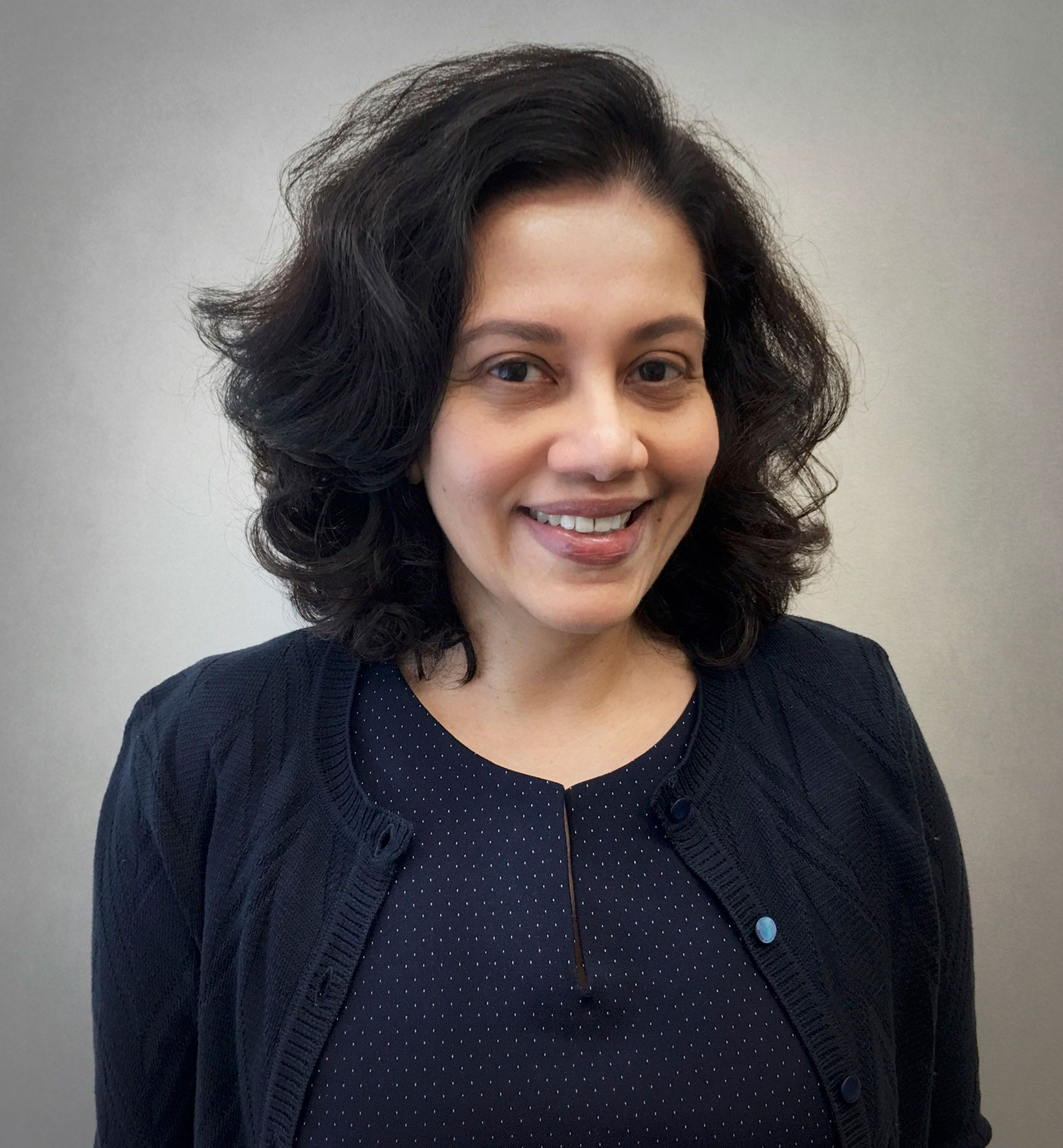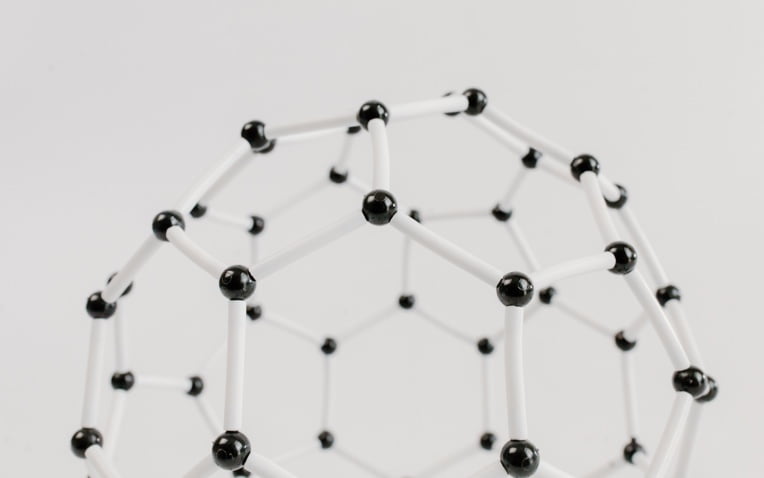DR. SUDESHNA DAS
Dr. Sudeshna Das received funding from the Karen Toffler Charitable Trust in 2022 at Harvard
Biography
Dr. Sudeshna Das grew up in India. Her mother was an elementary school teacher, and her father was an engineer. She and her sister spent their childhood in various cities throughout India and Nigeria because of her father’s job assignments. From an early age, Sudeshna gravitated toward math and puzzles, enjoying the challenge they bring. Puzzles provided her the opportunity to balance creativity and analytics to solve problems. She continued to pursue that passion in college.
She attended the Indian Institute of Technology, a prestigious institution with a strong engineering program and a reputation for developing problem-solving skills. With her dad’s encouragement, Sudeshna graduated with a degree in electrical engineering as 1 of 10 women in a class of 500 men. She quickly bonded with these women and formed life-long friendships over their shared love of math and science. Sudeshna also met her husband at the Indian Institute of Technology. After graduation they moved to the United States, where she attended Boston University. Her advisor, Temple Smith, taught her to love science, to be curious, and to perform research. She felt incredibly inspired, intrigued, and encouraged. She graduated with a PhD in Biomedical Engineering.
After graduate school, she joined Millennium Pharmaceuticals, where she worked throughout the entire drug discovery to development pipeline. A few years later, her former boss reached out to see if she was interested in

joining the neurology department at Massachusetts General Hospital. Later, Dr. Das was tasked with running the Data Core of the Massachusetts Alzheimer’s Research Center directed by Dr. Bradley T. Hyman.
Today, Dr. Das is an Assistant Professor of Neurology at Massachusetts General Hospital and Harvard Medical School. She also directs the MGH Biomedical Informatics Core. Her current research focuses on developing and applying integrative computational methods in biomedical and brain research to understand and ultimately cure neurological disorders. Dr. Das and her husband have one son, a junior at Yale studying humanities.
“Studying diseases is a very complex process. All our research that we conduct makes a tiny difference in the whole universe of events, but it does have an impact. It can be fascinating, challenging, and even frustrating sometimes because there are so many variables to tweak and so many factors to understand.”
– Dr. Sudeshna Das

Biography
Dr. Sudeshna Das grew up in India. Her mother was an elementary school teacher, and her father was an engineer. She and her sister spent their childhood in various cities throughout India and Nigeria because of her father’s job assignments. From an early age, Sudeshna gravitated toward math and puzzles, enjoying the challenge they bring. Puzzles provided her the opportunity to balance creativity and analytics to solve problems. She continued to pursue that passion in college.
She attended the Indian Institute of Technology, a prestigious institution with a strong engineering program and a reputation for developing problem-solving skills. With her dad’s encouragement, Sudeshna graduated with a degree in electrical engineering as 1 of 10 women in a class of 500 men. She quickly bonded with these women and formed life-long friendships over their shared love of math and science. Sudeshna also met her husband at the Indian Institute of Technology. After graduation they moved to the United States, where she attended Boston University. Her advisor, Temple Smith, taught her to love science, to be curious, and to perform research. She felt incredibly inspired, intrigued, and encouraged. She graduated with a PhD in Biomedical Engineering.
After graduate school, she joined Millennium Pharmaceuticals, where she worked throughout the entire drug discovery to development pipeline. A few years later, her former boss reached out to see if she was interested in joining the neurology department at Massachusetts General Hospital. Later, Dr. Das was tasked with running the Data Core of the Massachusetts Alzheimer’s Research Center directed by Dr. Bradley T. Hyman.
Today, Dr. Das is an Assistant Professor of Neurology at Massachusetts General Hospital and Harvard Medical School. She also directs the MGH Biomedical Informatics Core. Her current research focuses on developing and applying integrative computational methods in biomedical and brain research to understand and ultimately cure neurological disorders. Dr. Das and her husband have one son, a junior at Yale studying humanities.
“Studying diseases is a very complex process. All our research that we conduct makes a tiny difference in the whole universe of events, but it does have an impact. It can be fascinating, challenging, and even frustrating sometimes because there are so many variables to tweak and so many factors to understand.”
– Dr. Sudeshna Das

Research Focus
Challenges
Trained as a computational biologist, Dr. Das works at the cellular and molecular level. She uses various sets of data to measure the state of our genes. The human genome contains 3 billion base pairs that make up about 20,000 different genes. By finding new ways to analyze this complex web, she aims to identify how these genes and their micro- and macro- environment relate to health and disease.

Focus and Priorities
Dr. Das’s current focus is on studying gene expression data to understand the underlying mechanisms in neurodegenerative diseases. The data provide a glimpse into how normal brain function and homeostasis is impacted by the disease, and perhaps how to reverse the process.
Dr. Das is using spatial transcriptomics to understand the regional differences in the
distribution of gene expression in the brain.
Because she studies Alzheimer’s pathology, she investigates the distribution of beta amyloid plaques, neurofibrillary tangles, and gene expression of glial cells around them. She is also analyzing how the cells look when they’re in different locations, or when they’re near or far from other types of molecules. For example, are there more reactive astrocytes as you get closer to plaques? Or how does distance from a tangle impact disease-associated microglia?

Benefits
Dr. Das is aiming to understand the differences in spatial transcriptomics at both the cellular and regional level. She hopes that if they can decipher the distribution of molecules and how they collude and counteract to cause diseases like Alzheimer’s, researchers can someday find a molecule that a drug could target, helping to treat the disease.
Karen Toffler Charitable Trust Investment
The Investment from the Karen Toffler Charitable Trust (KTCT) is allowing Dr. Das to both access a brain bank as well as the technology it takes to measure spatial data at the cell and regional levels. By studying the brain tissue, she will then be able to focus on the cause and effects of the pathology. The technology for her research is expensive, so KTCT’s support has directly impacted her studies and accelerated her research.
“I like fitting together pieces of the jigsaw puzzle and seeing the complex picture unfold.”
– Dr. Sudeshna Das